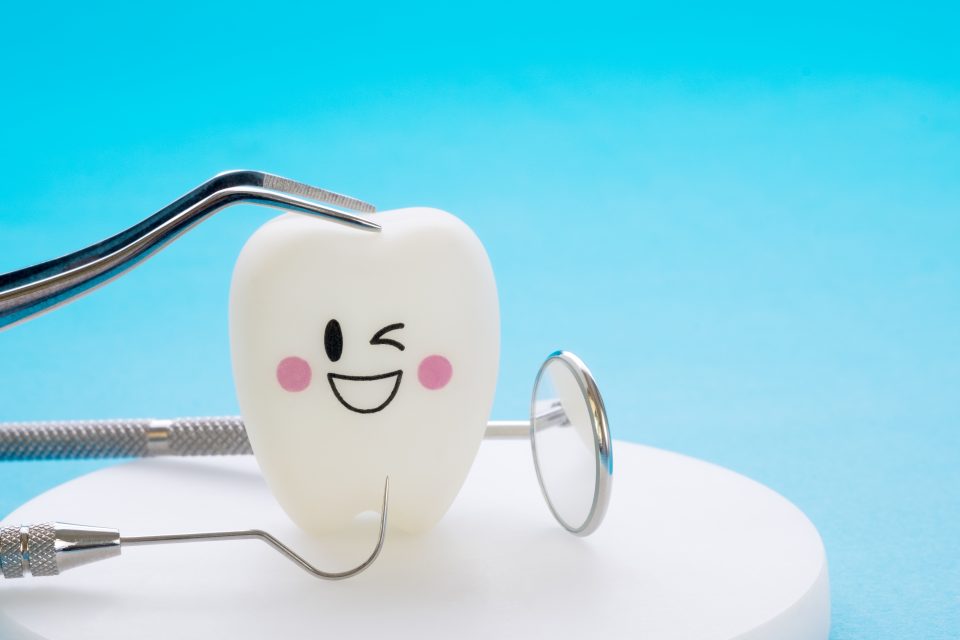Contrary to what many denture-wearers believe, dentures require regular maintenance, including relines, repairs, and replacement. In fact, the average denture should be relined every two to three years and replaced every five to seven years for the most optimal fitting prosthesis. There are many reasons for this maintenance interval and for regular dental examinations, whether or not the patient perceives any problem.
The first problem has to do with the basic function of the bone surrounding natural teeth. Natural teeth are held in their sockets by thousands of “cables”, called the periodontal ligament that tug and pull on the supporting bone during function. The bone is designed to be strengthened and stimulated in this manner. When the teeth are removed, the bone no longer has appropriate stimulation, and shrinkage occurs unless it is directly loaded again with dental implants. Bone atrophy is accelerated by inappropriate forces caused by loose and ill-fitting dentures.
Relining, or replacing the tissue surface of the denture, helps preserve bone by adapting dentures to the gums as they shrink, but it is only helpful for dentures that are otherwise in good condition, which includes a proper bite relationship. Relining also helps to encourage health of the soft tissues because dentures plastic is porous and becomes heavily laden with bacteria and yeast over time. Relining refreshes the tissue surface of dentures with new acrylic. Sometimes a more advanced type of relining, called rebasing, is the treatment of choice when all of the pink portion of a denture is in poor condition and needs to be replaced.
New dentures should be made when relining or rebasing of dentures can no longer re-establish proper fit and function. Often this is obvious by wear or fracture of the denture teeth. When dentures contribute to headaches or when the patient’s face begins to look “collapsed” or “old”, the need for new dentures is likely.
Lastly, but certainly not of least importance, denture wearers need to stay current with regular dental examinations for inspection of not only the dentures but the tissue for pre-cancerous lesions. Since most people feel they do not need to go to the dentist once they have dentures, many early pre-cancerous lesions are missed.
Everyone is at risk for oral cancer, whether they have teeth or not. In fact, the constant “trauma” and lack of blood circulation caused by chronic denture wear increases the risk for oral cancer development. For this reason alone, annual dental examinations are recommended for denture wearers.
Many patients with older dentures report their dentures fit fine. You can relate this to the fit of shoes. Shoes get broken in over time and seem comfortable. However, the fact is, over time shoes lose their ability to provide proper support. Even though they may be comfortable, they may be causing other problems due to this lack of support.
If you are a denture wearer and have not seen a dentist in a year or more, it’s time to consider a dental visit. Learn about how your dentures are fitting and whether relining or replacing them makes sense. For most, it is also never too late to consider the benefits of dental implants to help preserve bone and secure dentures in place.
Dr. St. Clair maintains a private dental practice in Rowley and Newburyport dedicated to health-centered family dentistry. He has a special interest in treating sleep apnea and TMJ problems. If there are certain topics you would like to see written about or questions you have please email them to him at jpstclair@stclairdmd.com




